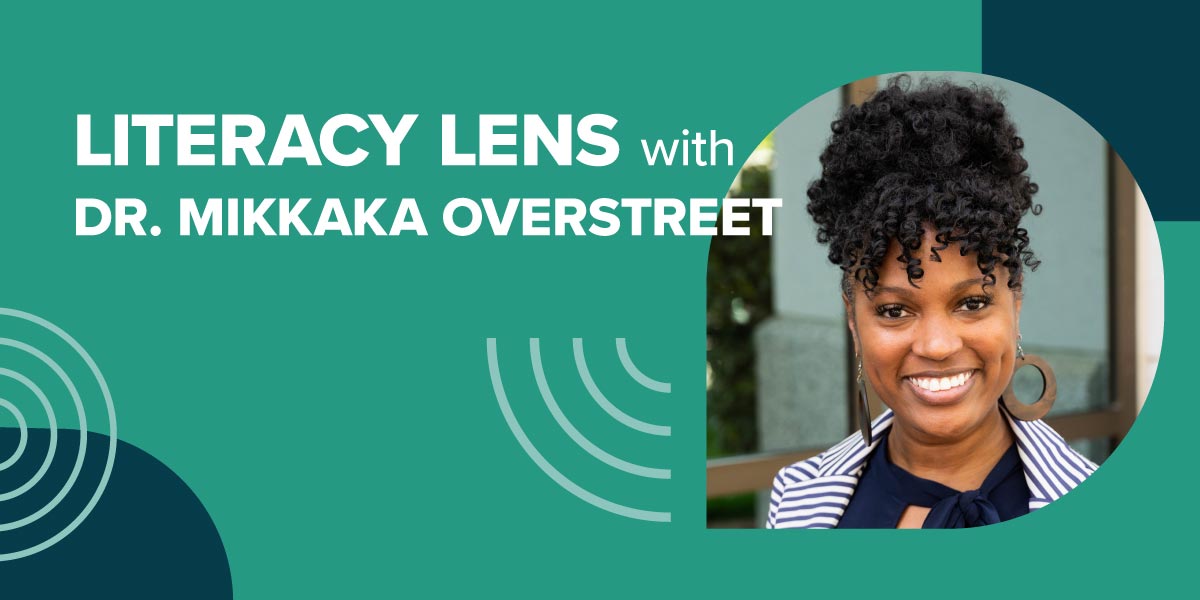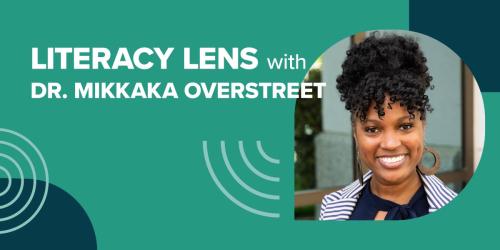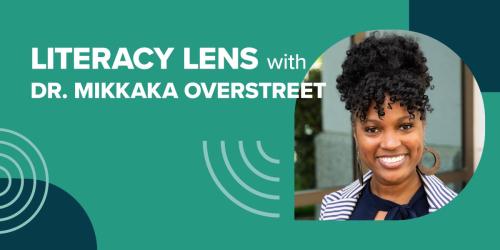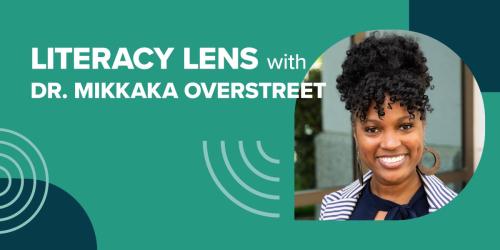Literacy Lens: Promising Approaches to Implementing Evidence-Based Literacy Practices

According to a recent Education Week article, 31 states have passed legislation that mandates a science of reading approach to literacy in grades K–3. Nearly all this legislation has been passed since 2013, marking one of the most significant shifts in early literacy instruction in U.S. history.
Implementing these new statewide literacy practices requires thoughtful planning, and there is much these states can learn from each other. Recently, I conducted a scan of state literacy implementation efforts and identified two strategies that are gaining traction.
First, several states are focusing their efforts on supporting, training, and investing in literacy leadership. This approach is based on years of research and has been championed by organizations such as the National Association of Elementary School Principals, which endorses the Lead for Literacy Framework. According to a 2020 article from Principal Magazine,
When it comes to literacy instruction that fosters students’ word recognition and language comprehension skills, the need for strong organizational and instructional school leaders is greater than ever.
Second, a several states are embracing a “literacy community” approach that supports statewide collaboration and the free exchange of thoughts and ideas. This approach is grounded in Vygotsky’s sociocultural theory that community plays a central role in making meaning. The focus here is on developing a common understanding of evidence-based early literacy practices, establishing a shared common purpose around improving students’ early literacy achievement, and building the collective will and commitment to support implementation. While focused on consistent statewide implementation, this approach also acknowledges the importance of local context and respect for teacher professionalism and autonomy.
Let’s take a closer look at how these two approaches are playing out in specific states.
A Focus on Literacy Leadership in Alaska, Florida, Michigan, Mississippi, and Utah
Nearly all states provide training for teachers on how to implement science of reading practices. These five states are going further by placing equal emphasis on the role of school and district leaders. Alaska made this commitment explicit by including leadership in the first step of the Alaska Strategic Reading Plan:
If we provide professional development in the science of reading for teachers, paraprofessionals, and leaders; then teachers, paraprofessionals, and leaders will enhance skills in science of reading instruction and data literacy; resulting in more targeted, effective reading instruction for students at all ability levels, ultimately increasing student reading proficiency.
Details on some of Alaska’s professional development offerings are included in the October 2022 post, but it’s worth highlighting here as well. The Department of Education & Early Development (DEED) chose to offer training for K–3 teachers and leaders on concurrent tracks. Alaska’s approach to providing statewide training for teachers and leaders was to outsource the professional development to external providers to develop and deliver through both on-site training and online modules. This has allowed DEED to scale up quickly, offer flexible learning platforms, and reach rural and remote areas. Some courses offer stipends and/or college credits for participation. Additionally, their website includes a plethora of literacy resources and an ongoing professional development calendar.
Meanwhile, the Florida Collaborative Leadership for All Students’ Success Program supports assistant principals, principals, and district-based instructional leaders through professional development and “fostering and sustaining a statewide community of leaders with a shared vision of high-quality instructional leadership.” Additionally, the Florida Center for Reading Research has developed a series of literacy-focused training and resources for leaders in collaboration with the Florida Department of Education.
Michigan is leveraging existing literacy networks and bringing leaders together to collectively address the goals of Michigan’s Action Plan for Literacy Excellence. These goals align with a 2016 law that requires schools to identify learners who are struggling with reading and writing and to provide additional help. The law states that grade 3 students may repeat third grade if they are more than one grade level behind beginning with the 2019–20 school year.
Mississippi has had a similar law since 2013 and is now recognized as a leader in literacy due to the progress it has made on national assessments in recent years. The state has invested significant resources in teacher training around the science of reading and is now ramping up similar training for leaders via the Mississippi Literacy Leaders Network.
Meanwhile, a recent report from the Albert Shanker Institute noted that Utah not only passed legislation mandating statewide implementation of the science of reading, it also passed companion legislation that requires all principals, supervisors, local educational district leaders, and literacy specialists to complete professional learning in these evidence-based practices. School leaders and literacy coaches are then required to work in partnership to ensure that all teachers have a team of support for improving literacy instruction.
A Collaborative Approach in Maryland and Oregon
Teaching children to read is an inherently collaborative act that involves parents, family members, educators, school and district leaders, educator preparation programs, librarians, and more. Ideally, all these partners have a firm understanding of evidence-based literacy practices and are committed to implementing them.
Maryland and Oregon have both made collaboration and consensus-building a key part of their statewide early literacy efforts. In June 2017 Maryland administered two surveys to all local education agencies and community-based programs with the goal of gathering feedback on literacy needs. The surveys generated data from nearly 850 respondents across the state, including child care providers, parents, teachers, administrators, directors, coordinators, resource teachers, content coordinators, and grade-level experts.
This needs assessment data became the foundation for the state’s Comprehensive Literacy Plan, which has since been revised and refined based on further feedback from a variety of interested parties. The state has established a plan for continuous improvement that includes ongoing data collection and oversight by an instructional leadership team consisting of administrators, teacher leaders, parents, students, and community members.
Another excellent example of wide-reaching collaboration is taking place in Oregon, where the state is intentionally building capacity to implement a new statewide literacy framework. Recently, the state used a collaborative community engagement process to determine how to invest set-aside Elementary and Secondary School Emergency Relief (ESSER) Funds, ultimately deciding to update the Oregon Literacy Framework, which was first developed in 2009. Oregon Governor Tina Kotek reinforced this decision, naming early literacy as one of her top priorities for education.
The purpose of the revised framework is to build statewide coherence, clarity, and common ground; fuel action and improvements; support districts and schools in the implementation of a comprehensive literacy vision and plan; and serve as a shared north star for educators, leaders, and community.
I have the honor of serving on Governor Kotek’s Early Literacy Educator Preparation Council, whose charge is to strengthen the preparation of teachers and school administrators to instruct elementary students on reading and writing. The committee includes representatives from several Oregon educator preparation programs, school districts, state agencies, and legislative bodies, as well as recognized literacy experts. We are developing recommendations for the Teacher Standards and Practices Commission, including rules for approving elementary educator preparation programs that operate in Oregon and licensing requirements for elementary educators.
Call to Action: What Lessons Can You Learn from Other States?
While each state has its own unique context and approach, there is much to be learned from sharing hard-won lessons in implementation. All educational change requires collaboration and the sharing of best practices. Rather than reinventing the wheel, consider which promising practices you can emulate in your state’s specific context or take pieces and parts to enhance and deepen your implementation. The resources below may be useful on your implementation journey.
Literacy Lens: Four Ways States Can Implement Evidence-Based Literacy Practices
Reversing the nationwide decline in reading achievement requires systemic and individual change. Here are four ways to approach the challenge.
Literacy Lens: The Impact of Literacy Leadership
Improving literacy outcomes for all students starts with consistently implementing evidence-based practices—and that requires strong leadership.


